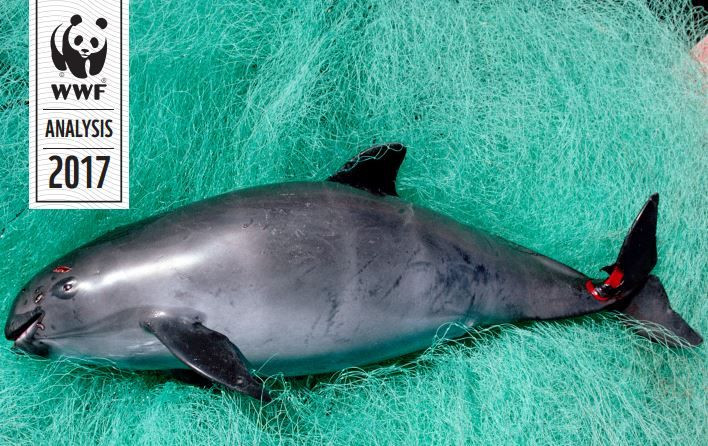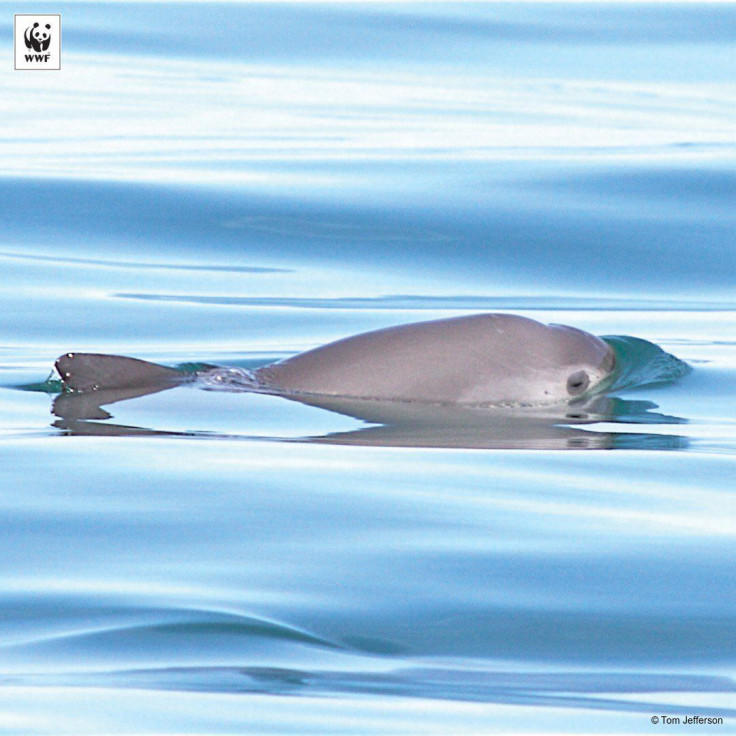Endangered Animal Dies During Conservation Effort, Threatening Extinction

The effort to save a critically endangered animal from extinction took a step backward over the weekend, when one of the creatures died in captivity.
Scientists estimate that fewer than 30 vaquitas remain alive but that porpoise population is down a female after the incident, which occurred during a rescue effort in the Gulf of California. The marine mammals are believed to live exclusively in the northern part of that water body, between Baja California and the rest of Mexico. The Mexican government, the U.S. Navy and nonprofit organizations have teamed up for a conservation program that involves capturing the vaquitas and keeping them in a pen so that wildlife experts can monitor and breed them, with the goal of releasing them back into the wild when their numbers are stronger.
But that initiative, dubbed Vaquita Conservation, Rescue, and Recovery — or VaquitaCPR for short — has reported that one of the vaquita, a female that was not pregnant or lactating, died shortly after being captured on Saturday afternoon.
“From the moment of capture, the vaquita was under constant care and observation for its health and safety,” VaquitaCPR said. “Marine mammal veterinarians monitoring the vaquita’s health noticed the animal’s condition began to deteriorate and made the determination to release. The release attempt was unsuccessful and life saving measures were administered. Despite the heroic efforts of the veterinary team, the vaquita did not survive.”
VaquitaCPR said the team was “heartbroken by this devastating loss.”

According to the group, scientists, an independent panel and the Mexican government will be reviewing the incident.
“No conservation project like this has ever been done before, and the operation comes with significant risk,” VaquitaCPR said. “However, scientists agreed that the risk of extinction in the wild was still far greater than the risk of rescue efforts. … The risk of losing a vaquita during field operations was always acknowledged as a possibility, but it was determined that it was unacceptable to stand by and watch the vaquita porpoise disappear without a heroic attempt at rescue.”
The announcement of the vaquita death came about a month after the conservation effort was announced. The nonprofit Center for Biological Diversity had reported that four dolphins trained by the Navy would be charged with finding their porpoise cousins so that scientists could capture them and protect them from illegal fishing, what experts have called the greatest contributor to their extreme population decline. It is estimated that there are fewer than 30 vaquitas left, after their ranks have been halved in the last couple of years and reduced by 90 percent over the last six years.
Vaquitas physically resemble dolphins, but they have been nicknamed the “panda of the sea” because the gray animals have dark circles around their eyes and mouth. They are the world’s smallest porpoises, growing to about 5 feet long and weighing about 120 pounds.
Gillnets, fishing nets that hang down into the water vertically and trap fish like salmon and seabass by their gills, have killed many vaquitas and contributed to their critically endangered status.
“This little porpoise wasn’t discovered until 1958 and a little over half a century later, we are on the brink of losing them forever,” the World Wildlife Fund has said about the creature.
© Copyright IBTimes 2024. All rights reserved.





















